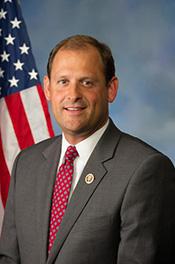0
To enhance Federal Reserve transparency.
12/15/2023, 3:58 PM
Summary of Bill HR 3467
Specifically, the bill requires the Government Accountability Office (GAO) to conduct an audit of the Federal Reserve's activities, including its monetary policy decisions, lending practices, and operations. This audit would provide Congress and the public with a better understanding of how the Federal Reserve operates and how it impacts the economy.
Proponents of the bill argue that increased transparency within the Federal Reserve is necessary to ensure that the institution is acting in the best interests of the American people. They believe that a thorough audit will help identify any potential conflicts of interest or mismanagement within the Federal Reserve. Opponents of the bill, however, argue that increased oversight could undermine the independence of the Federal Reserve and potentially politicize its decision-making process. They believe that the Federal Reserve should be allowed to operate independently in order to effectively manage monetary policy and promote economic stability. Overall, the Federal Reserve Transparency Act seeks to strike a balance between providing greater transparency within the Federal Reserve while also preserving its independence. The bill is currently under consideration in the House of Representatives and may undergo revisions before potentially being passed into law.
Congressional Summary of HR 3467
This bill requires the Federal Reserve Board to disclose on a more frequent basis information about emergency credit facilities, discount window lending programs, and open market operations. It also moves up the termination date of board-authorized credit facilities. The bill requires certain nonpublic data related to credit facilities be made available, with some limitations, to the appropriate congressional committees.
The bill revises the definition of a liquidity event. Currently, a liquidity event is defined as (1) an exceptional and broad reduction in the ability of financial market participants to sell financial assets without an unusual and significant discount or to borrow using financial assets as collateral without an unusual and significant increase in margin, or (2) an unusual and significant reduction in the ability of financial market participants to obtain unsecured credit. The bill eliminates this definition and instead requires the board, the Federal Deposit Insurance Corporation (FDIC), and the Department of the Treasury to define the term through a joint rulemaking.
Under the bill, Congress must be notified when the board or the FDIC makes a determination as to whether a liquidity event exists that warrants the use of a guarantee program (a program to guarantee obligations of insured depository institutions or holding companies during times of severe economic distress). The bill also requires congressional notification of the cost to the taxpayer of such guarantee program.

